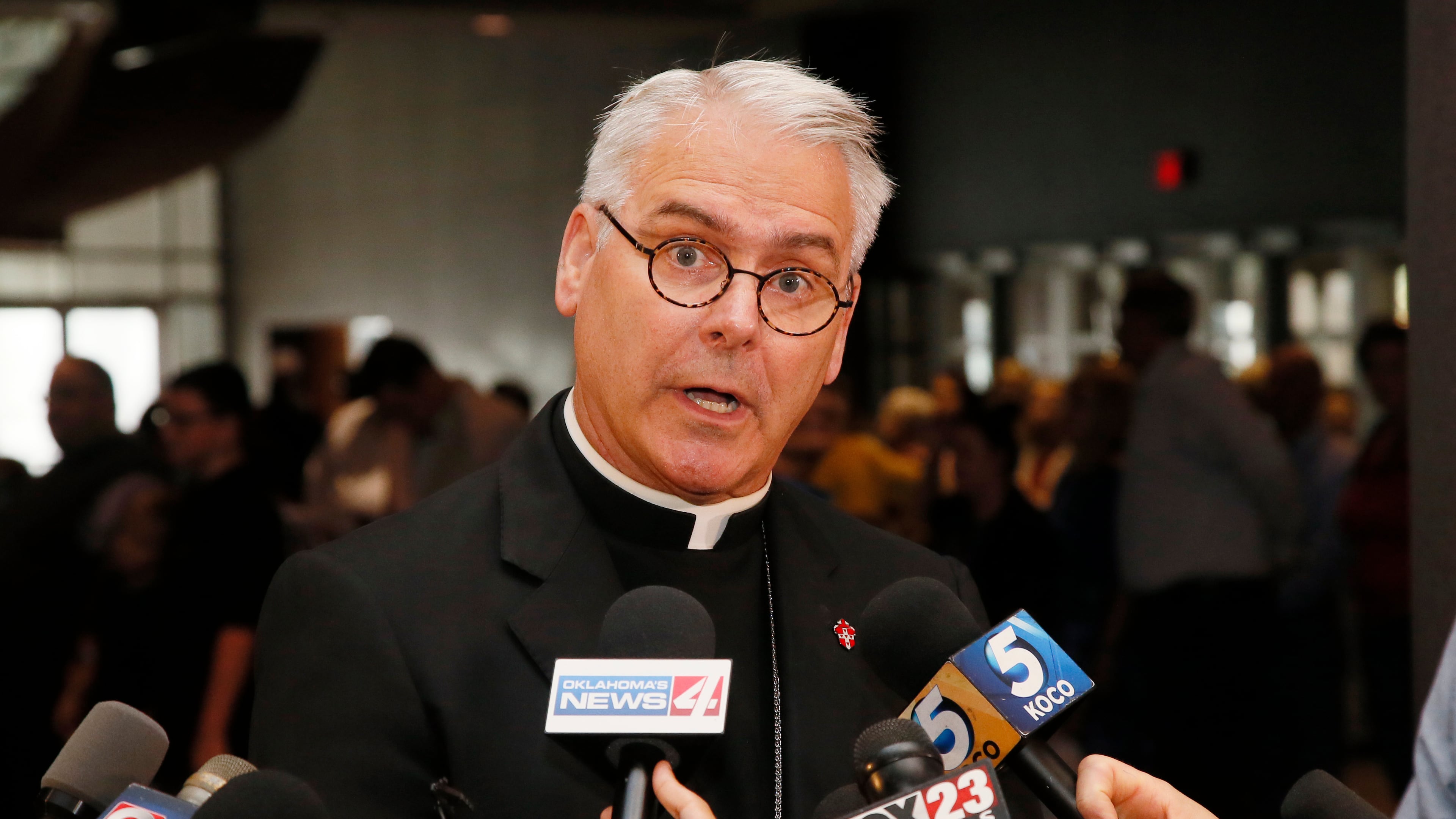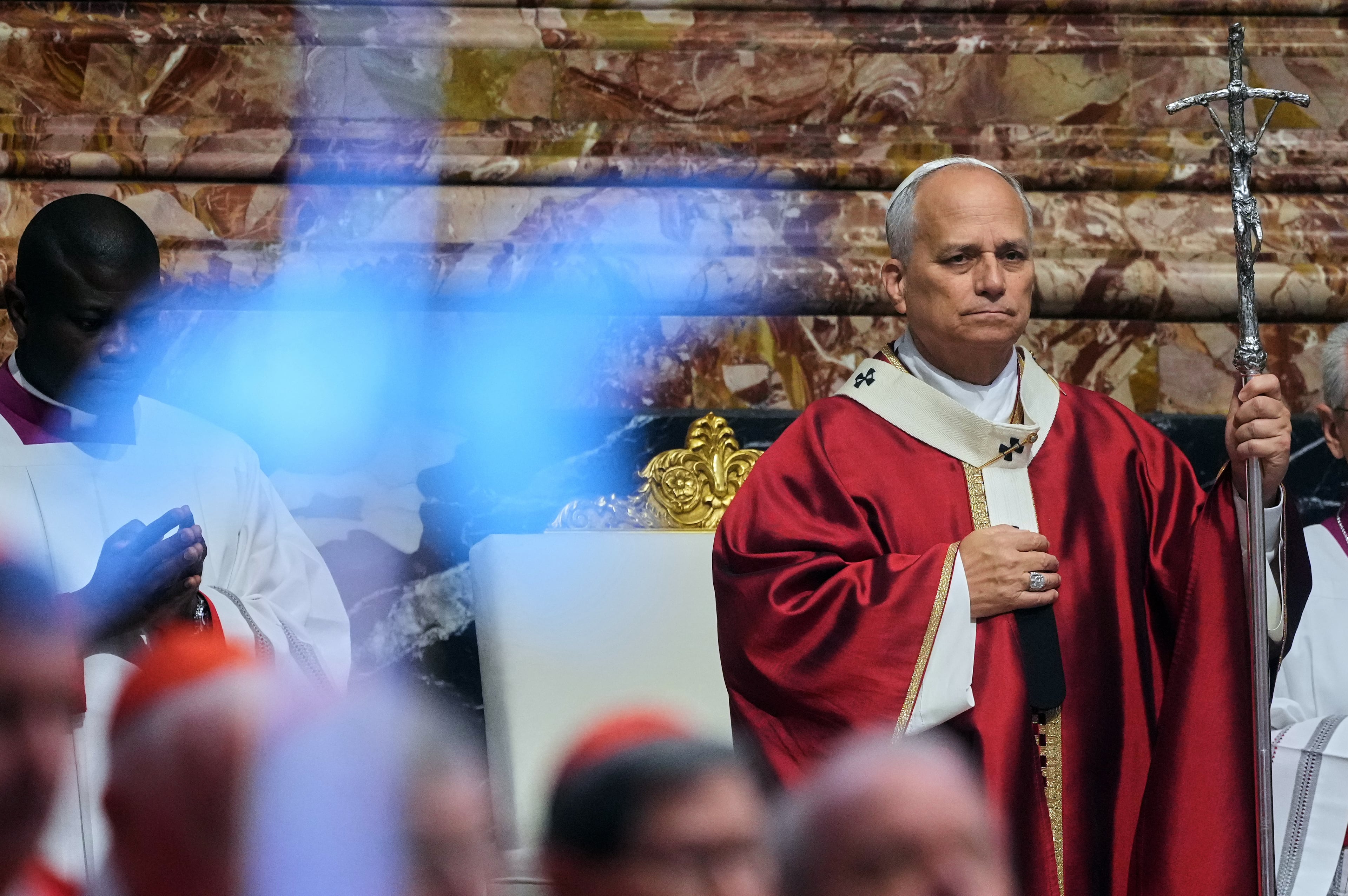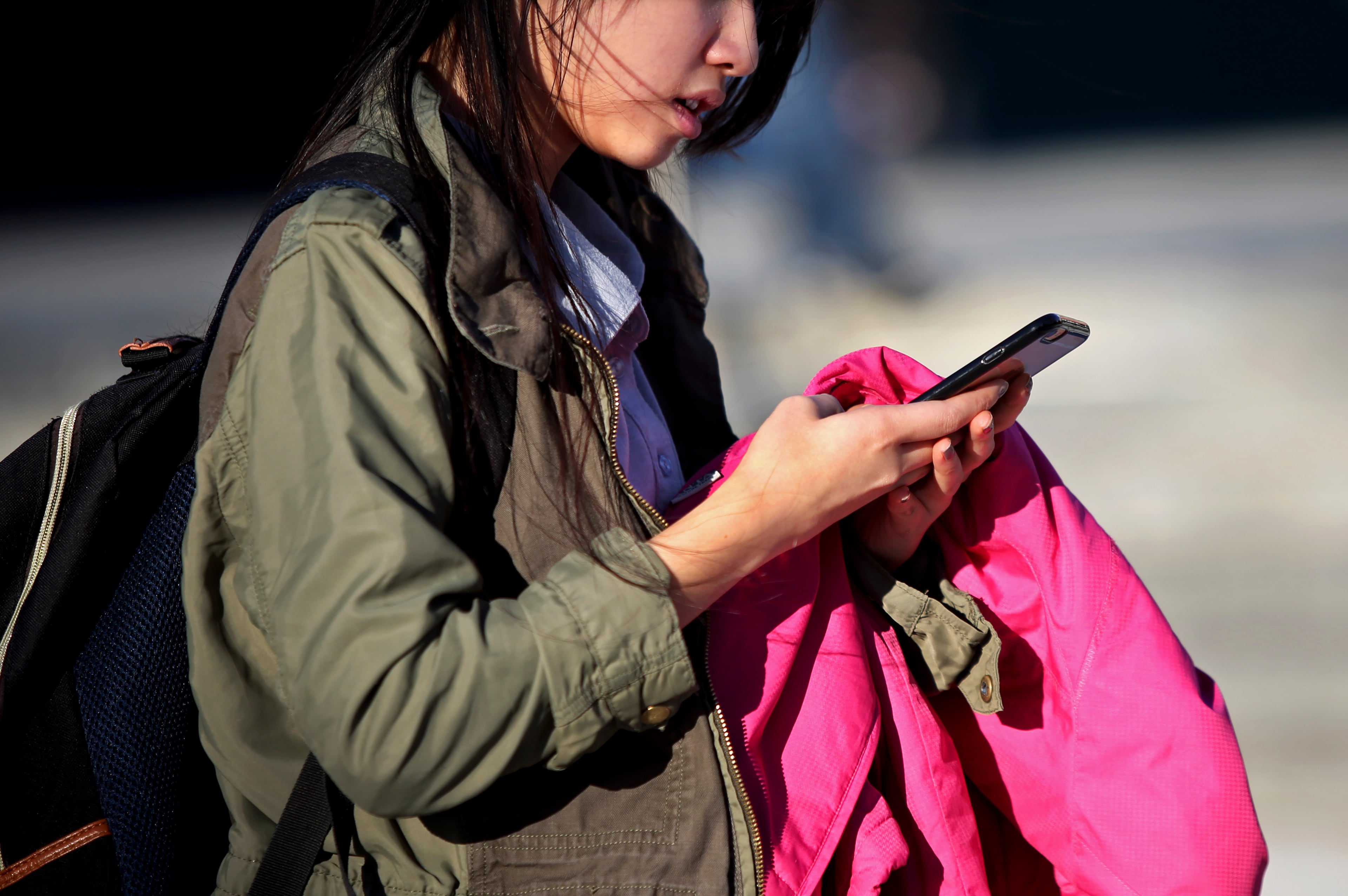US Catholic bishops select conservative culture warrior to lead them during Trump’s second term

BALTIMORE (AP) — U.S. Catholic bishops elected Oklahoma City Archbishop Paul Coakley as their new president on Tuesday, choosing a conservative culture warrior to lead during President Donald Trump’s second term.
The vote acts as a barometer for the bishops’ priorities. In choosing Coakley, they are doubling down on their conservative bent, even as they push for more humane immigration policies from the Trump administration.
Coakley was seen as a strong contender for the top post, having already been elected in 2022 to serve as secretary, the No. 3 conference official. In three rounds of voting, he beat out centrist candidate Bishop Daniel Flores of Brownsville, Texas, who was subsequently elected vice president.
Coakley serves as adviser to the Napa Institute, an association for conservative Catholic powerbrokers. In 2018, he publicly supported an ardent critic of Pope Francis, Italian Archbishop Carlo Maria Viganò, who was later excommunicated for stances that were deemed divisive.
The U.S. Conference of Catholic Bishops has often been at odds with the Vatican and the inclusive, modernizing approach of the late Pope Francis. His U.S.-born successor, Pope Leo XIV, is continuing a similar pastoral emphasis on marginalized people, poverty and the environment.
Half the 10 candidates on the ballot came from the conservative wing of the conference. The difference is more in style than substance. Most U.S. Catholic bishops are reliably conservative on social issues, but some — like Coakley — place more emphasis on opposing abortion and LGBTQ+ rights.
The slate reflects “the dynamics of the American hierarchy in that it’s split down the middle,” said David Gibson, director of Fordham University’s Center on Religion and Culture.
There was no clear front-runner. The candidates were nominated by their fellow bishops, and Coakley succeeds the outgoing leader, Military Services Archbishop Timothy Broglio, for a three-year term. The current vice president, Archbishop William Lori of Baltimore, was too close to the mandatory retirement age of 75 to assume the top spot.
Coakley beat out a well-known name on the ballot, Bishop Robert Barron of Minnesota’s Winona-Rochester diocese, whose popular Word on Fire ministry has made him a Catholic media star. He serves on President Donald Trump’s Religious Liberty Commission, along with another candidate, Bishop Kevin Rhoades of Fort Wayne-South Bend, Indiana.
Coakley also edged out centrist candidates that some Catholic insiders thought could help unify U.S. bishops and work well with the Vatican.
Flores, in particular, was seen as a strong centrist contender. He has been the U.S. bishops’ leader in the Vatican’s synod process to modernize the church. As a Latino, he represents a growing segment of the U.S. Catholic Church. From his diocese along the U.S.-Mexico border, he is traditional on sexual ethics and outspoken in defending migrants.
The bishops plan to discuss immigration during the meeting. On many issues, they appear as divided and polarized as their country. But on immigration, even the most conservative Catholic leaders stand on the side of migrants.
The question is how strongly the whole body plans to speak about the Trump administration’s harsh immigration tactics.
Fear of immigration enforcement has suppressed Mass attendance at some parishes. Local clerics are fighting to administer sacraments to detained immigrants. U.S. Catholic bishops shuttered their longstanding refugee resettlement program after the Trump administration halted federal funding for resettlement aid.
The bishops sent a letter to the pope from their meeting, saying they “will continue to stand with migrants and defend everyone’s right to worship free from intimidation.”
The letter continued, “We support secure and orderly borders and law enforcement actions in response to dangerous criminal activity, but we cannot remain silent in this challenging hour while the right to worship and the right to due process are undermined.”
Pope Leo recently called for “deep reflection” in the United States about the treatment of migrants held in detention, saying that “many people who have lived for years and years and years, never causing problems, have been deeply affected by what is going on right now.”
___
Associated Press religion coverage receives support through the AP’s collaboration with The Conversation US, with funding from Lilly Endowment Inc. The AP is solely responsible for this content.

